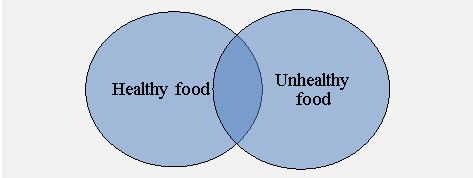Урок англійської мови "Discussion at the Round Table “Meat: For and Against.”
Урок англійської мови в 11 класі
Вчитель: Палівода Тетяна Ярославівна
Тема. Discussion at the Round Table “Meat: For and Against.”
Мета: узагальнити матеріал попередніх уроків; активізувати мовний і лексичний запас; практикувати діалогічне і монологічне мовлення,пошукове читання, аудіювання; сприяти обміну особистими думками і враженнями; розвивати мислення, увагу, вміння вчасно включитися в розмову; забезпечити реальний зміст висловлювань учнів, який відповідає дійсності; розширяти світогляд, стимулювати інтелектуальну активність і комунікативність; підвищити інтерес до англійської мови.
Обладнання: підручники О. Карп’юк “English-11”, мультимедійна дошка, комп’ютери, слайд-шоу, проектні роботи, картки з зображенням продуктів, ілюстрації до тексту, аудіо запис, схема на дошці, прислів’я, ввідні фрази для діалогу, картки з завданнями.
Тип уроку: урок розвитку мовлення
Форма уроку: урок-диспут
Хід уроку
І. Організаційний момент.
Good morning! Dear friends, try to forget that we are at the lesson. We are going to have a friendly talk. Firstly I would like to get acquaintance with you. I am Tetiana Yaroslavivna, an English teacher from Ulianivka School. And what can you tell me about you?
II. Warm Up.
Some of us like brown bread,
Some of us like white,
Some of us eat a lot of meat,
Some don`t think it`s right.
Some of us like apples,
Some drink juice at night.
Some of us eat many sweets,
Some don`t think it`s right.
III. Across Cultures.
Read and explain the proverbs and sayings (on the blackboard). Find the Ukrainian equivalents.
- One man`s meat is another man`s poison.
- A hungry man is an angry man.
- You are what you eat.
- To eat to live, not to live to eat.
- Tastes differ.
IV. Оголошення теми і мети уроку.
So, as you see, the topic of the lesson is connected with food. But I offer you to discuss one of the problems in this big topic “Food” – it`s “Meat: For and Against”. Write the date and the topic in your exercise-books.
V. Oсновна частина уроку.
1. Lexical material.
Speaking:
- Name the dishes you know.
- Name the meat dishes.
- Name the meatless dishes.
- Name the dishes of Ukrainian cuisine.
Work with the cards on the scheme.
Take the pictures “Food” and stick them in the correct circle (in your mind).

Explain your choice. Pay attention that some products can be healthy and unhealthy. It depends on the way of cooking and how much or how often we eat them.
2. Interactive work. Speaking in dialogues.
It is a poll. You have to come up to as many classmates as you can to find the answers to the questions you have received. Use the phrases on the blackboard:
- Can you tell me...?
- I`d like to ask you...
- It`s interesting for me...
Questions:
- What do you usually have for breakfast?
- What do you usually have for dinner?
- What do you usually have for supper?
- Do you like meat?
- Who in your family likes meat?
- What is your favourite dish?
- How often do you eat fruit?
- How often do you eat vegetables?
- Do you prefer boiled or fried food?
- Do you celebrate your birthday without meat?
- Do you like sausage?
What are the results of the poll? (e. g. I asked classmates about breakfast. One answer was “I don`t have breakfast”, other usually have tea or coffee and buttered bread, one drink juice, one have milk products.)
How do you think what in your eating habits is not good for your organism? There some pupils who eat much meat and some who eat little meat. Why?
3. Project works. Speaking in monologues.
You know that there people who don`t eat meat at all. What are they? What are the people who like meat? Let`s listen to your classmates with the projects.
4. Work in groups with text-books and computers. Reading and writing.
Let`s learn more information. I offer you to read the text “Meat is murder?” on page 120 and complete the sentences you will see on the monitors (slide show). Write them down:
- Vegetarian is a person who doesn`t eat meat.
- Vegan is a person who doesn`t eat any kind of animal produce.
- About 5 % of the British Population is vegetarians.
- Some people become vegetarians because they dislike the taste of meat.
- Other vegetarians believe that it is cruel to kill animals for food.
- People who follow a vegetarian diet don`t have weight problems because they consume less animal fat.
- Most of the planet`s vegetarians are Hindus and live in India.
- It is potentially unhealthy to stop eating meat.
- Meat is rich in proteins which is a vital part of a balanced diet.
Represent your work. Use the pictures (on the tables) to complete your answers.
5. Speaking with the visual support. Monologue. Listening.
If people decide to become vegetarians they must know some principles of this diet and follow them. Look at the monitor and listen to Bohdan (project work “Pyramid of Vegetarian Diet”).
What do you think about it? Can you follow it? Why?
6. Speaking in dialogues with visual and audio support. Listening and reading. Work in pairs.
O. K. It`s so easy to be vegetarians in theory. But in real life not many people (5% of the British) become them. Listen to the dialogue “In the Restaurant” (audio) and pay attention only at the speaking about vegetarianism. Put the sentences in the correct order to renew that dialogue. (Pupils get the sheets of paper with the sentences of the dialogue).
Act the dialogue out:
- Well, has everyone ordered? What about you, Oles?
- Vegetarian dish.
- It`s only a fruit salad and a vegetable salad. But no main dish, I`m afraid.
- I have stored it.
- Are you a vegetarian, Oles?
- Well, yes, but not a strict vegetarian. I sometimes eat fish and eggs.
- As far as I can judge it`s not very easy to be a vegetarian here, is it?
- That`s true.
- I don`t think you have any problems in Britain. There are many vegetarian cafes and restaurants and every ordinary one has some vegetarian dish as a rule.
- I know there are many vegetarians in the UK and this number is growing fast.
- Oh, yes, it is so fashionable nowadays and some people turn vegetarian just to keep up with the times. And many of my friends have been vegetarians for years.
7. Speaking in dialogues. Discussion.
Pupils are divided into two groups “Vegetarians” and “Meat-eaters”. Each group gets the papers with one statement on every of them. The task is to find the corresponding counter arguments to the arguments.
|
Arguments of Vegetarians
|
Counter arguments of Meat-eaters |
|
|
|
|
|
|
|
|
|
|
VІ. Підсумок уроку.
- Can you say that vegetarianism is only a fashion nowadays?
- Can sportsmen (children, ill, old, hard-working people) be vegetarians?
- What important have you learned at the lesson?
- Will you change your eating habits?
- Are you FOR or AGAINST meat?
- To be or not to be vegetarians it is your decision, isn`t it?
VII. Домашнє завдання. Write a short composition on today`s topic using the material of the lesson.
VIII. Оцінювання роботи учнів.
|
Arguments of Vegetarians
|
Counter arguments of Meat-eaters
|
|
Vegetarians are fit.
|
Meat-eaters are strong.
|
|
Meat has a high cholesterol level.
|
Cook meat correctly, eat with vegetables and you`ll low cholesterol level.
|
|
Many religions are vegetarian.
|
Many rituals in many nations are with meat.
|
|
To eat meat is to kill animals.
|
Human body is built for eating meat.
|
|
God said “Don`t kill!”
|
God Himself gave fish to hungry people.
|
Questions for the poll
|
What do you usually have for breakfast?
|
|
||||||||||||||
|
What do you usually have for dinner?
|
|||||||||||||||
|
What do you usually have for supper?
|
|||||||||||||||
|
Do you prefer boiled or fried food?
|
|||||||||||||||
|
Do you celebrate your birthday without meat?
|
Dialogue
|
A: Well, has everyone ordered? What about you, Oles?
|
|
A: It`s only a fruit salad and a vegetable salad. But no main dish, I`m afraid. |
|
A: Are you a vegetarian, Oles?
|
|
A: As far as I can judge it`s not very easy to be a vegetarian here, is it?
|
|
A: I don`t think you have any problems in Britain. There are many vegetarian cafes and restaurants and every ordinary one has some vegetarian dish as a rule.
|
|
A: Oh, yes, it is so fashionable nowadays and some people turn vegetarian just to keep up with the times. And many of my friends have been vegetarians for years.
|
|
B: Vegetarian dish.
|
|
B: I have stored it.
|
|
B: Well, yes, but not a strict vegetarian. I sometimes eat fish and eggs.
|
|
B: That`s true.
|
|
B: I know there are many vegetarians in the UK and this number is growing fast.
|


про публікацію авторської розробки
Додати розробку
